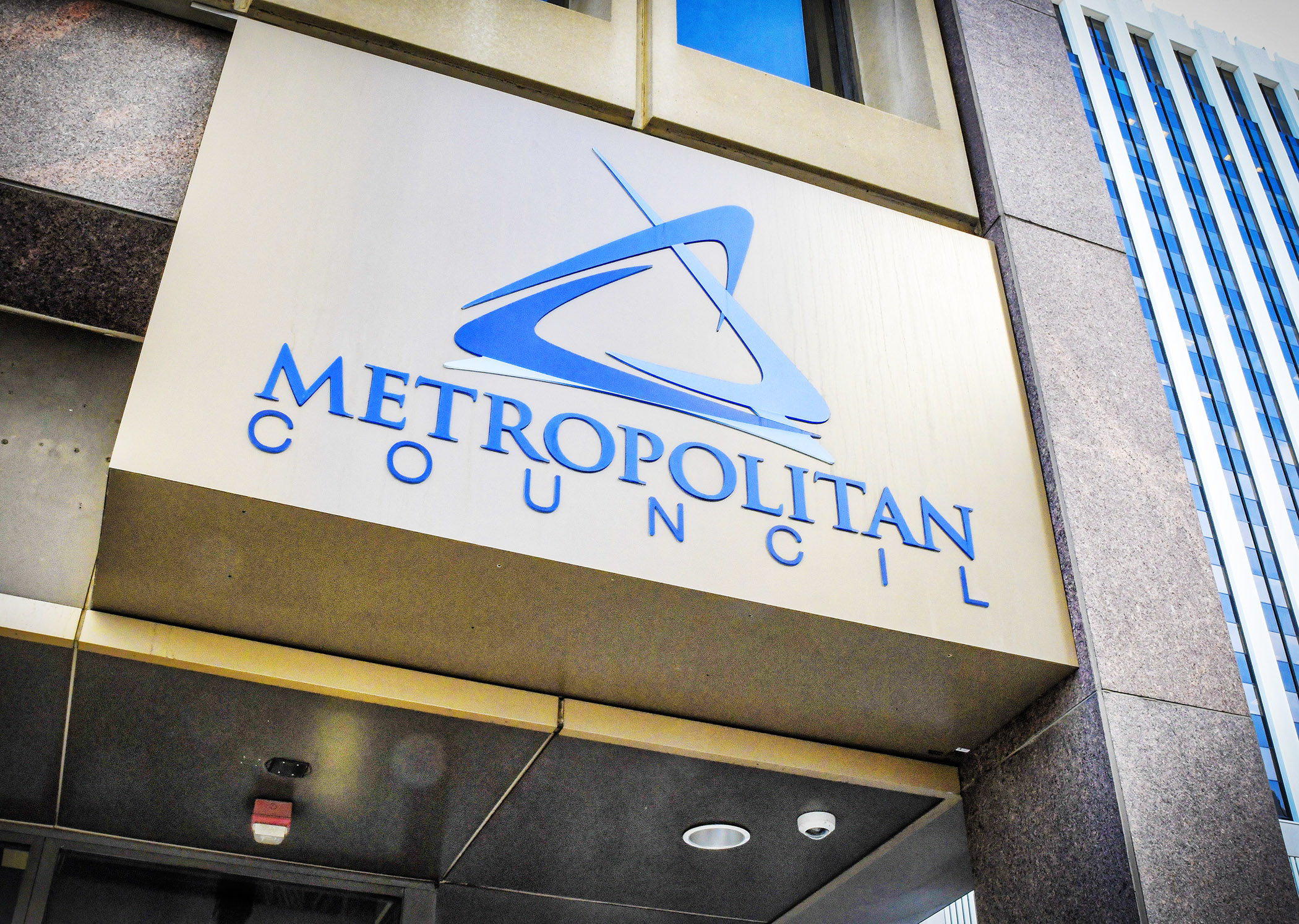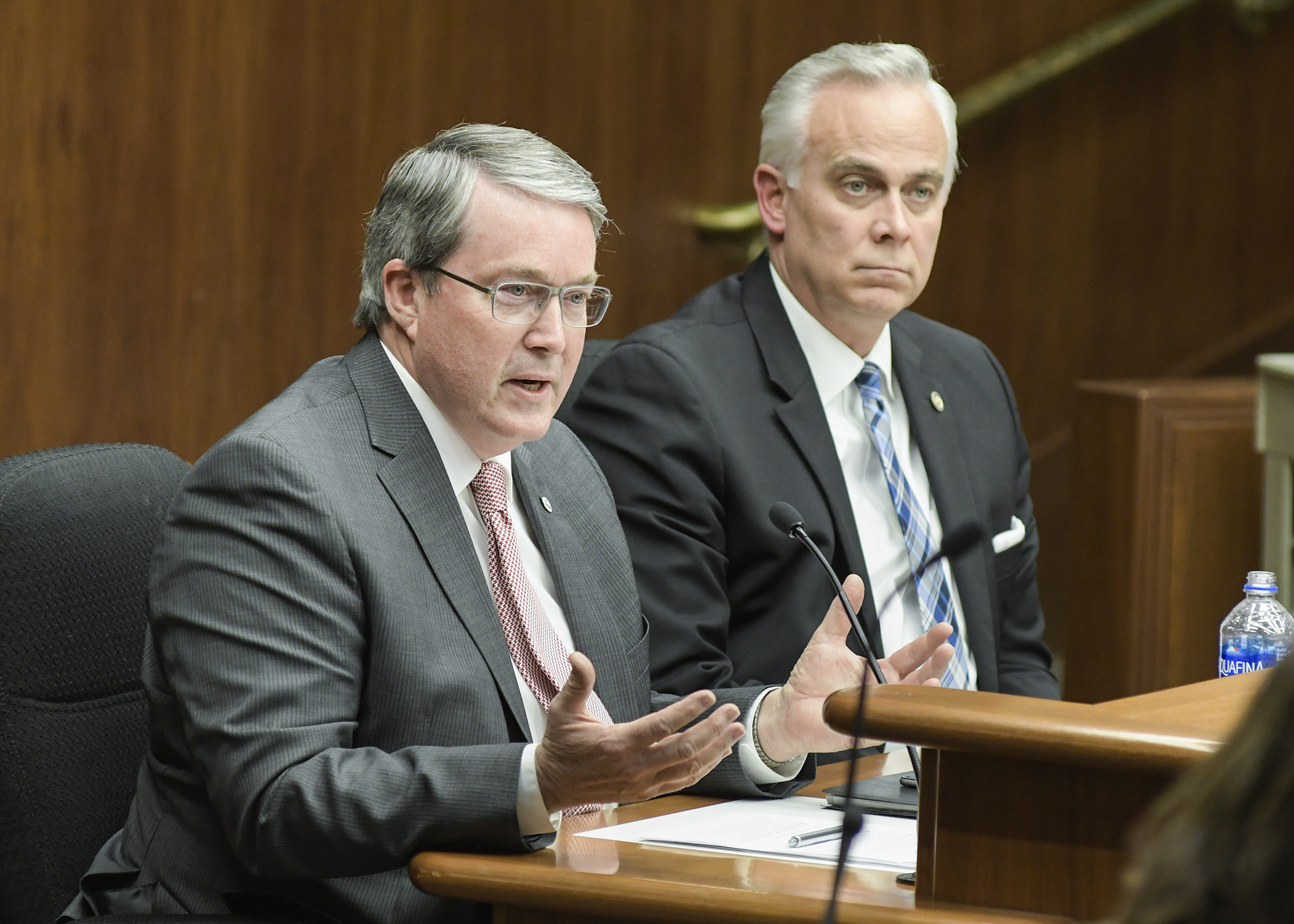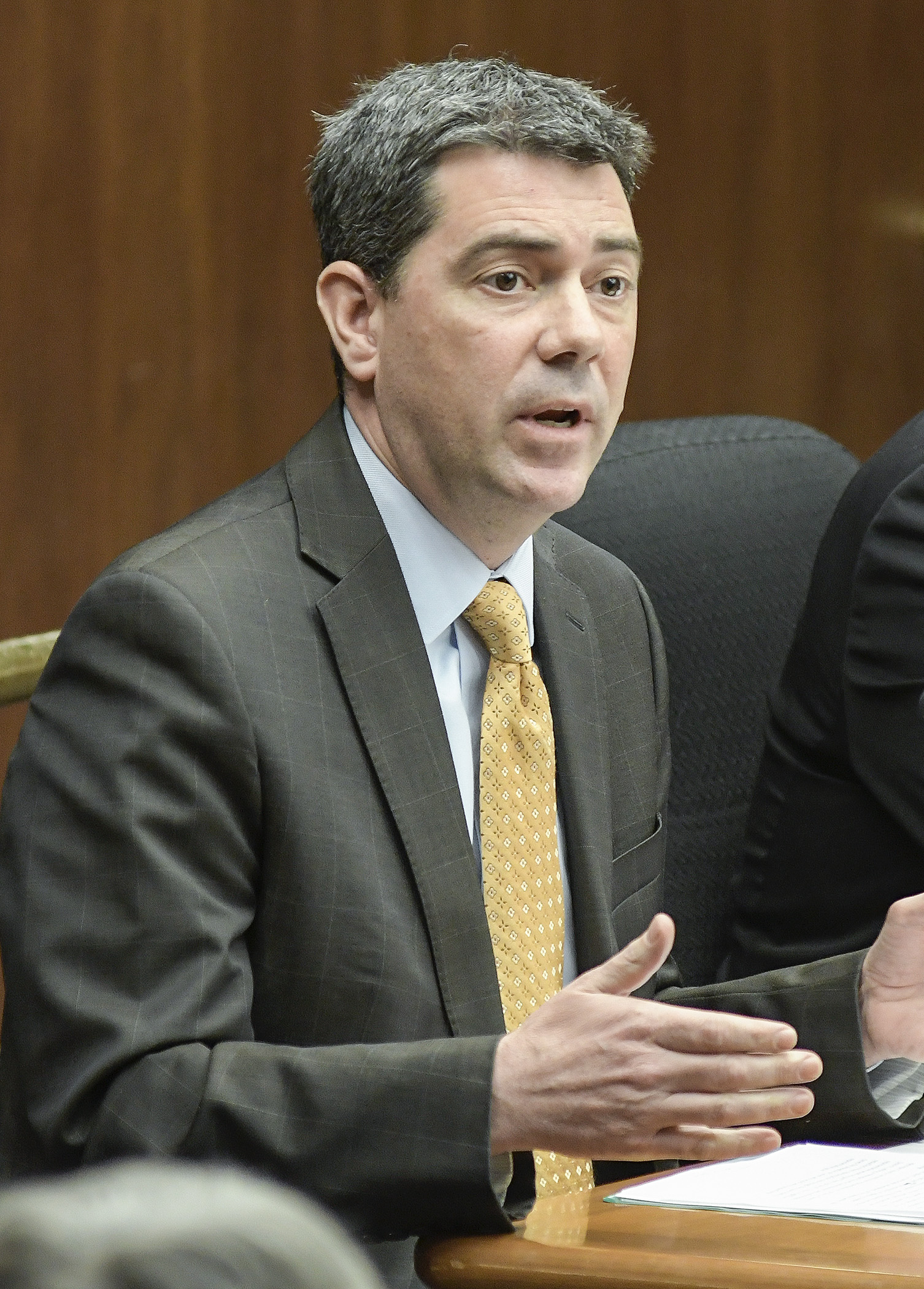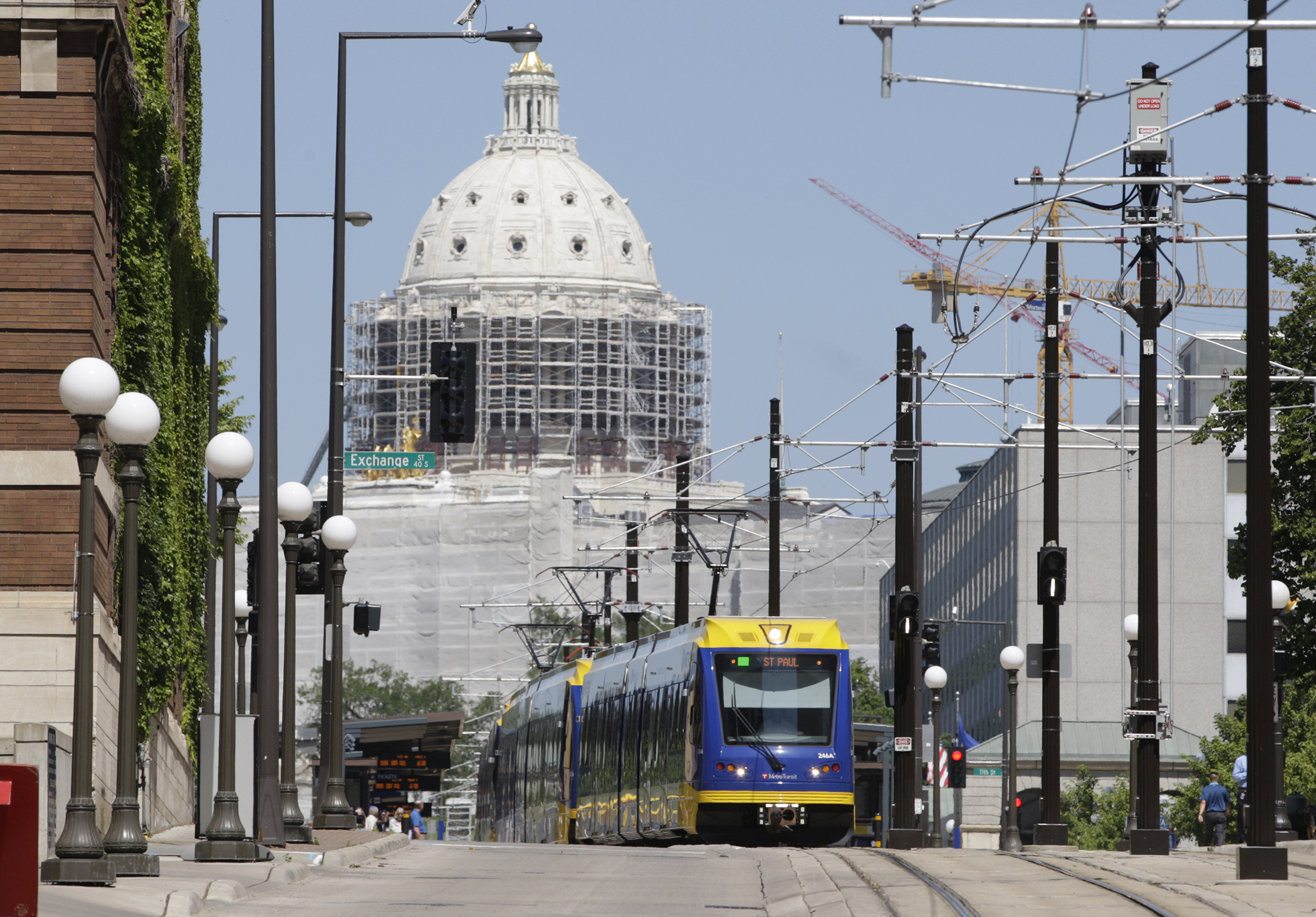Republican lawmakers revive effort to overhaul Met Council

The Metropolitan Council has been a lightning rod almost since the moment it came into existence a half-century ago. Now, 50 years after the Legislature created it, Republican lawmakers are renewing a push for serious overhaul of the powerful regional planning body that has picked up steam in recent years.
A year after Gov. Mark Dayton vetoed legislation that would have made the agency nearly unrecognizable, multiple bills aimed at changing the council’s makeup and reining in its far-reaching scope are again moving through the House.
Since its creation in the late-1960s, the Met Council has overseen land use, transit, and wastewater planning for the seven-county Twin Cities metropolitan area of more than 3 million people. It operates Metro Transit, distributes federal dollars, and — at its core — attempts to bring a regional perspective to long-term planning across the bustling metro.
But, as the region has expanded — and population has shifted to the suburbs — critics say the agency’s mission has, too, making it less responsive to the local governments over which it has so much sway.
Or, as Rep. Tony Albright (R-Prior Lake) put it to a House committee on Monday, the Met Council has become “a monster.”
 Scott County Commissioner Michael Beard, left, testifies before the House Transportation and Regional Governance Policy Committee in support of a bill sponsored by Rep. Tony Albright, right, that would modify Metropolitan Council governance. Photo by Andrew VonBank
Scott County Commissioner Michael Beard, left, testifies before the House Transportation and Regional Governance Policy Committee in support of a bill sponsored by Rep. Tony Albright, right, that would modify Metropolitan Council governance. Photo by Andrew VonBank“The point is not to question whether to change the Met Council,” Albright said. “It’s how to change the Met Council.”
Albright has revived a tweaked version of legislation he introduced in 2017 that proposes to dramatically reshape the agency, enlarging the body from 17 to 29 members — most of whom would be local elected officials, as opposed to the current cast of gubernatorial appointees.
Under HF3273, the council’s membership would include members appointed by the seven counties, by municipal committees in each Metropolitan Council District, and by the mayors of Minneapolis and St. Paul. They would serve staggered four-year terms; currently, members serve concurrently with one another, and coterminously with the governor who appointed them.
The bill would also eliminate the Transportation Advisory Board — the body made up of elected officials that advises the council on how to spend federal transportation funds — folding its responsibilities into a new-look Metropolitan Council.
The House Transportation and Regional Governance Policy Committee approved the bill this week, re-referring it to the House Government Operations and Elections Policy Committee. A Senate companion, SF2809, sponsored by Sen. Eric Pratt (R-Prior Lake), has gained the approval of two committees and been sent to the Senate Floor.
Albright’s bill isn’t alone. The House transportation policy committee has heard a slew of bills this week intended to reform what its critics say is a metropolitan planning body run amok, but that the council’s supporters contend are unfairly targeting an important agency — even if it’s one in need of reform.
The unelected council may be different than many other metropolitan planning organizations across the country, said Judd Schetnan, the Metropolitan Council’s government affairs director, but that’s because it has many responsibilities that other agencies don’t.
“I would recommend the Legislature take a different approach than this,” Schetnan said, telling lawmakers that HF3273 would still fail to gain the governor’s support.
Seeking more accountability
Governors of all political persuasions have for decades been reluctant to loosen their grip on the council by surrendering the power to appoint its members.
But even some of the council’s defenders in the Legislature have said change is needed.
 Judd Schetnan, Metropolitan Council Government Affairs executive director, testifies before the House Transportation and Regional Governance Policy Committee during discussion of a bill that would modify Metropolitan Council governance. Photo by Andrew VonBank
Judd Schetnan, Metropolitan Council Government Affairs executive director, testifies before the House Transportation and Regional Governance Policy Committee during discussion of a bill that would modify Metropolitan Council governance. Photo by Andrew VonBankRep. Frank Hornstein (DFL-Mpls), a key DFL lawmaker on transportation issues, said during Monday’s hearing he believes that “[Albright] and I agree more than we disagree” on the need to overhaul the body. He unsuccessfully proposed an amendment to the Republican’s bill that would have made Met Council positions independently elected.
Another amendment introduced by Rep. Connie Bernardy (DFL-New Brighton) proposed a 17-member task force to study potential changes to regional governance. It, too, was voted down.
Supporters of a dramatic overhaul say having local elected officials like city council members and county commissioners serve on the agency in place of appointees will make the council less beholden to the governor and more in tune with local governments.
More local representatives, they say, means more accountability to taxpayers.
“The Met Council has got a great deal of image problems amongst local officials,” Rep. Jerry Hertaus (R-Greenfield) told a council official during a contentious hearing this week. “This has gone on for decades and the tension is high.”
But, detractors of the plan have said, having local officials also serve on a metro-wide planning board presents a minefield of conflict of interest concerns. If a city council member serves on the Metropolitan Council, too, do they make decisions based on what’s best for their city, or what’s best for the region?
Local officials are “elected to make local decisions,” said Patricia Nauman, executive director for Metro Cities. “They’re not elected to make regional decisions.”
Future rail lines also targeted
Also at play in the push for changing the Metropolitan Council is Republican lawmakers’ disdain for expensive rail mass transit projects.
 A Green Line light rail train near the State Capitol. House Photography file photo
A Green Line light rail train near the State Capitol. House Photography file photoProposals brought forward last year proposed prohibitions on using state funds for the planning or operation of future rail lines, including the planned Southwest LRT extension of the existing Green Line. HF3469, sponsored by Linda Runbeck (R-Circle Pines), chair of the House Transportation and Regional Governance Policy Committee, would direct the council to develop a new future transit system plan that excludes planning for expanded light rail, commuter rail or streetcar lines in favor of bus rapid transit and express bus corridors.
It’s needed, Runbeck said, to shake the council from its “fascination with fixed-guideway transit.”
Schetnan, though, said it would force the council to ignore locally preferred transit modes selected in consultation with local officials, and “would conflict with our transportation policy plan” required by federal officials.
The transportation policy committee approved the bill earlier this week and re-referred it to the House Health and Human Services Finance Committee. There is no Senate companion.
Additional bills taking aim at the Metropolitan Council’s transit planning are in the pipeline. Runbeck’s committee is scheduled next week to hear yet-to-be introduced bills she sponsors, including legislation that would require voter approval of any new or increased transit tax.
Other bills
Runbeck’s committee has also heard a number of bills this week that propose other, less sweeping changes to the council, including:
- HF3514, sponsored by Rep. Regina Barr (R-Inver Grove Heights), that would prevent the council from advertising services like light rail trains or buses as “a service of the Metropolitan Council,” and would prevent the council from asserting to the public that proposed legislative action could cause service reductions. The bill was laid over by the House Transportation and Regional Governance Policy Committee; a companion, SF3350 sponsored by Rep. Dave Osmek (R-Mound), awaits action in the Senate Local Government Committee; and
- HF3369, sponsored by Runbeck, would change the council’s finance structure and reporting requirements, moving the agency’s transportation portion onto the same fiscal calendar as state agencies (splitting it from the rest of the Metropolitan Council’s functions) and requiring the state use the state accounting system for its transportation-related financial activity. Controversially, it would also prohibit the council from using its operating budget reserves or state funds for capital costs related to transit, including maintenance. A Senate companion, SF3418 sponsored by Sen. Roger Chamberlain (R-Lino Lakes), awaits action in the Senate Local Government Committee.
Related Articles
Search Session Daily
Advanced Search OptionsPriority Dailies
Ways and Means Committee OKs proposed $512 million supplemental budget on party-line vote
By Mike Cook Meeting more needs or fiscal irresponsibility is one way to sum up the differences among the two parties on a supplemental spending package a year after a $72 billion state budg...
Meeting more needs or fiscal irresponsibility is one way to sum up the differences among the two parties on a supplemental spending package a year after a $72 billion state budg...
Minnesota’s projected budget surplus balloons to $3.7 billion, but fiscal pressure still looms
By Rob Hubbard Just as Minnesota has experienced a warmer winter than usual, so has the state’s budget outlook warmed over the past few months.
On Thursday, Minnesota Management and Budget...
Just as Minnesota has experienced a warmer winter than usual, so has the state’s budget outlook warmed over the past few months.
On Thursday, Minnesota Management and Budget...